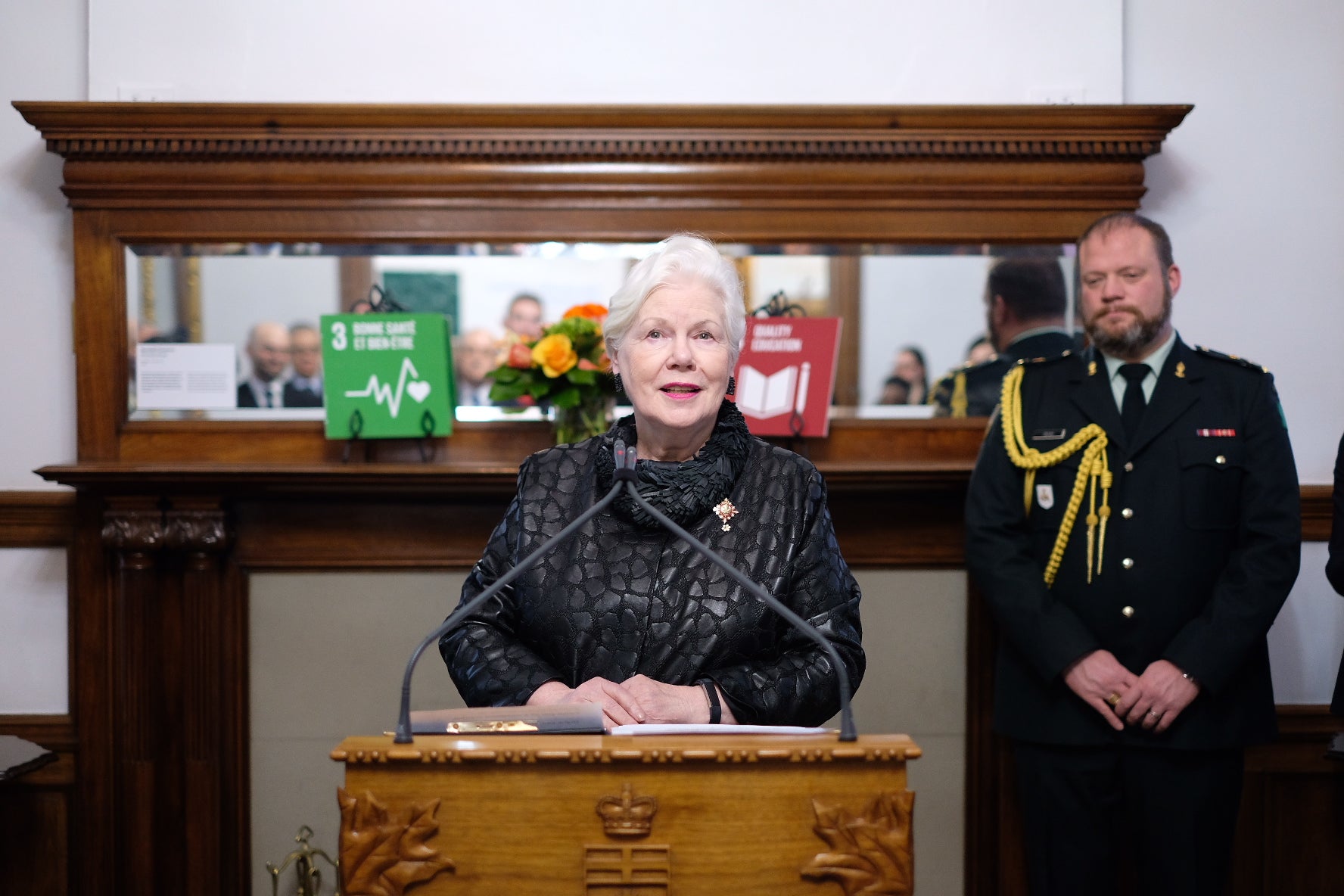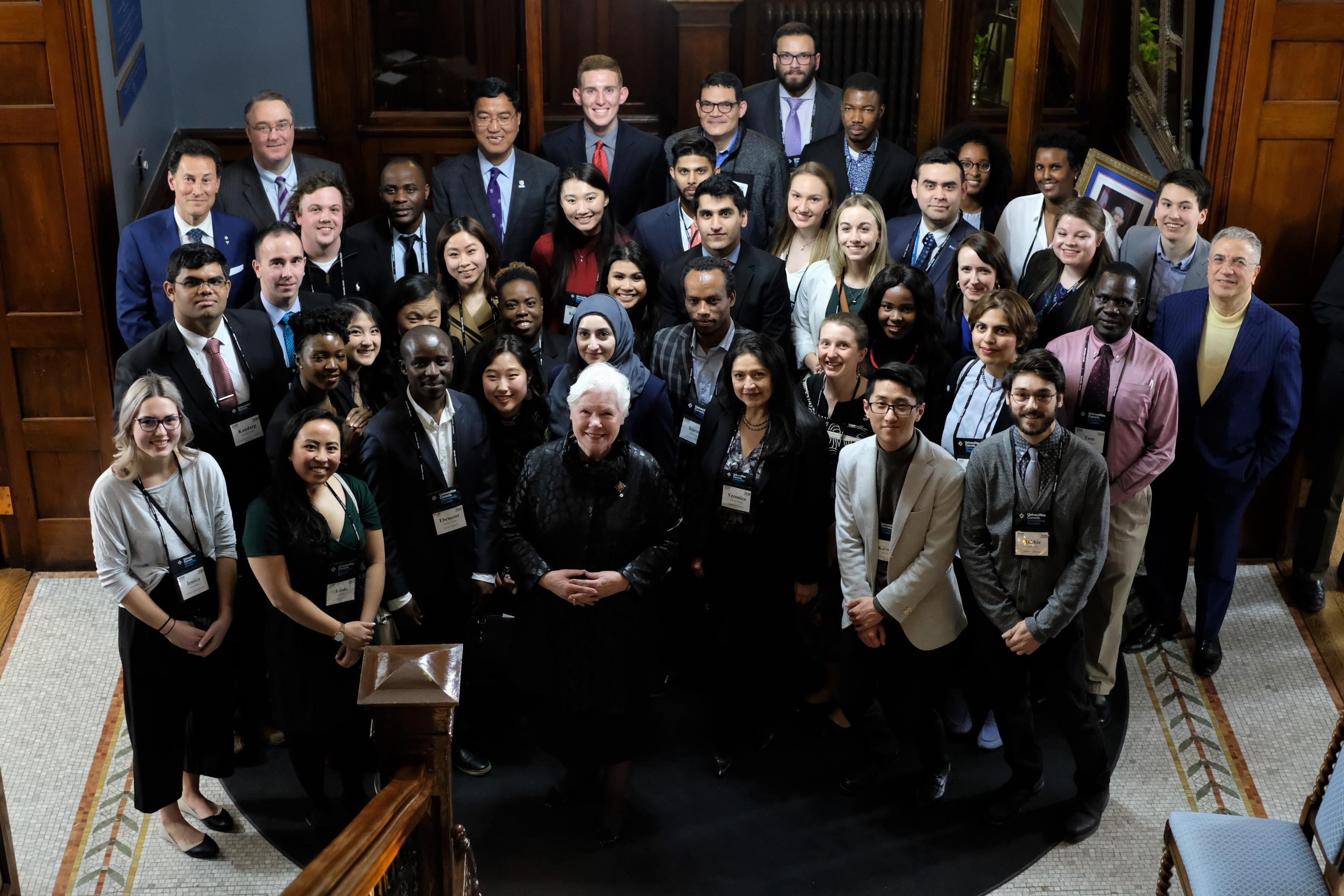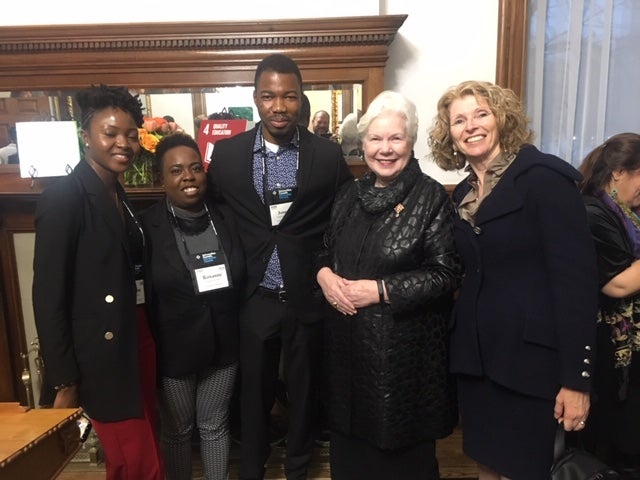The below was written by Queen Elizabeth Scholar, Roxanne Springer
Three and a half years ago, I started my PhD journey, graciously supported by the Queen Elizabeth Scholarship (QES) program. My research explores climate change impacts on wellbeing in Barbados. One of my goals for this research is to strengthen capacity in the Caribbean to protect populations from the adverse effects of climate change, by exploring the association between climate change, wellbeing and non-communicable diseases (NCDs). I employed a combination of qualitative data collection methods—in-depth interviews, key-informant interviews and a document review—to determine 1.) what Barbadians consider to be important to their wellbeing; 2.) their knowledge, perceptions and attitudes towards climate change; and 3.) health professional’s knowledge of connections between non-communicable diseases and climate change.
Of late, I find myself reflecting on the experiences I’ve had over the past 3+ years, the challenges I have encountered and ultimately, the lessons I learned along the way. These reflections were most recently prompted by the 5-year anniversary celebration of the QES program, marked by a reception hosted by Her Honour Elizabeth Dowdeswell, Lieutenant Governor of Ontario, at Queen’s Park, Toronto. This auspicious occasion brought together supporters of the QES program with a diverse group of 50 scholars from Universities across Ontario who have benefitted from the program. Scholars were afforded the opportunity to share experiences and highlights from their QES journey, either through speeches during the formal segment of the reception; a more relaxed round table display of our various placements abroad; or simply through the wonderful discussions we shared as we networked throughout the evening. Speakers for the night included Her Honour Elizabeth Dowdeswell, President of Universities Canada, Paul Davidson, and Chancellor of Laurentian University, Steve Paikin. During the formal segment, scholars were reminded that we are part of a community of young global leaders who have the potential to make significant contributions, both in our countries and abroad, in this time of unprecedented global change. Further, we were encouraged that the things we learn during this period of inquiry, discovery, international educational experiences and professional development will prove to be useful throughout our entire careers.

I was one of 16 students invited to share my experience during the round table presentations of our placements. I showcased my QES experience by highlighting three lessons I learned along the way, that I believe would be beneficial to current and future scholars. The first lesson is to be receptive to the different opportunities for learning available to us during this time. This QES experience has provided me with diverse opportunities for learning, which I did not initially have much interest in since I came in with a singular mindset: “Get that PhD – don’t get distracted because time is limited!” I had to be open to different opportunities and realise that in each one, was an opportunity to gain knowledge and develop personally and professionally, even if it was not directly related to the research I set out to do. I’ve presented at various conferences, attended public lectures, workshops and panel discussions, sat in classrooms with my peers and participated in round table discussions; in all these forums I have benefitted from these experiences. Having accepted that these opportunities are just as much a part of the QES experience as any academic undertaking, I believe myself to be a more well-rounded, balanced global citizen.

The second lesson I want to share is to be open to engaging with the communities around you. While it is expected that our research and/or placements abroad will have substantive contributions to our home countries or the communities which for a time we are a part of, there are other ways we as scholars can give back to communities across the globe. Community engagement activities provide us with avenues to have more immediate impacts on our communities, as well as to share the benefits that we have been afforded. Furthermore, as international students, it is easy to feel disconnected from those around us when we don’t share the same cultural upbringing, struggles and experiences; community engagement is one way to foster feelings of attachments and emotional connections in our homes away from home. Moreover, as prospective future global leaders, and current global citizens, we should want to engage with the communities around us, be empathetic to the concerns of these communities, and desire to use our strengths and talents to help bring about improvement or positive change.
The final lesson I wish to impart is simple: have fun (but not too much fun)! We are all here for important reasons, doing research for the betterment of our countries or communities; developing our professional skills and personal growth which makes for better global citizens. In so doing, we often become overwhelmed by hectic schedules and various commitments. Yet through it all, we need to be able to take a step back and enjoy moments of fun where we can find them. This cross-cultural experience is one that should not be taken for granted. Visit some local attractions, try the local cuisine and take lots of pictures to remember this experience. I assure you, it’s important for our mental wellbeing and our work will be better for it.

Coming away from the 5th anniversary reception of the QES program, I felt incredibly fortunate and proud to be part of such a dynamic group of people doing exciting, ground-breaking, community-enhancing work across the globe. So, let me end this by extending a huge thank you to all those involved in making the QES program the success it is and creating opportunities for us Queen Elizabeth Scholars.